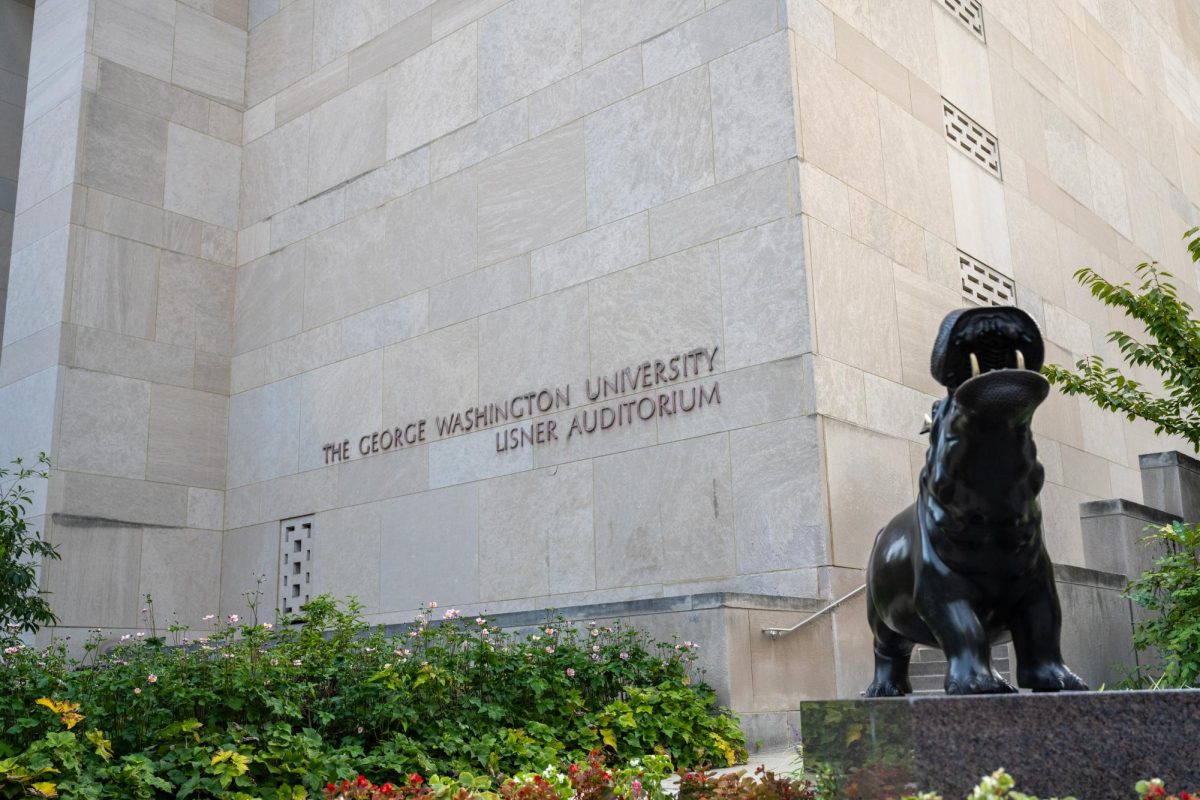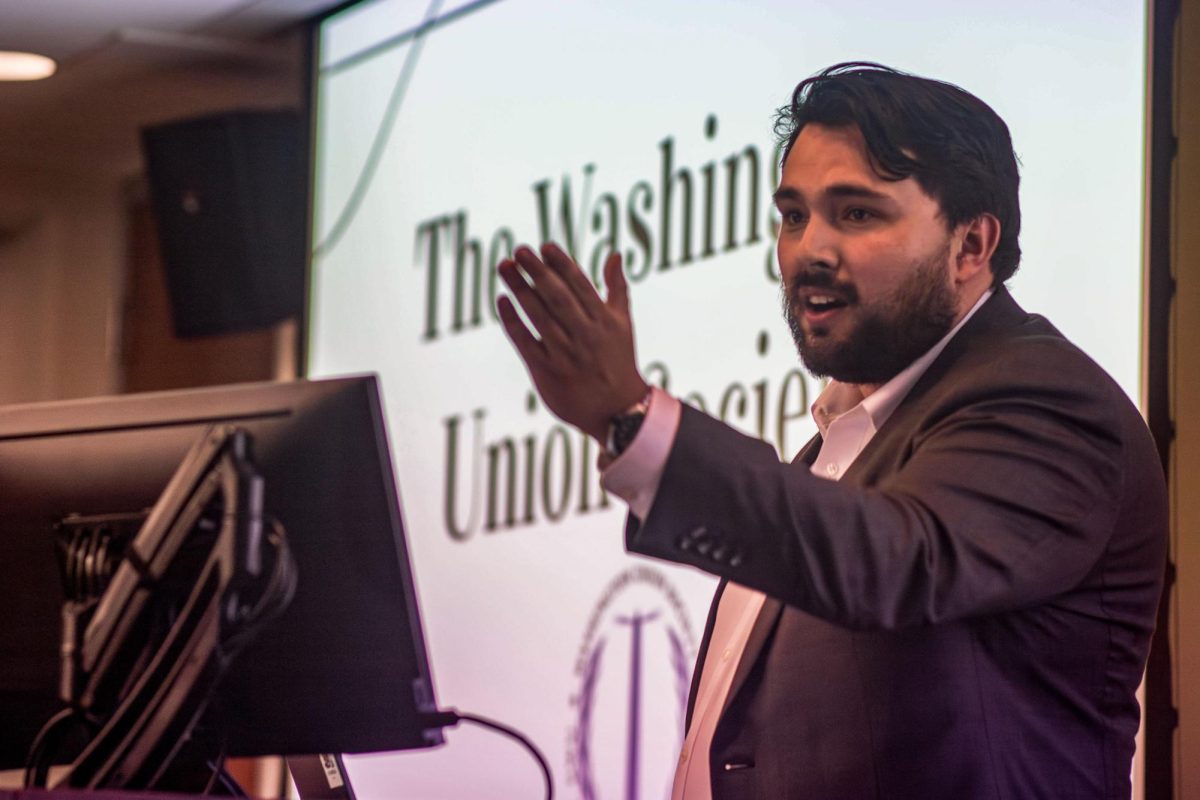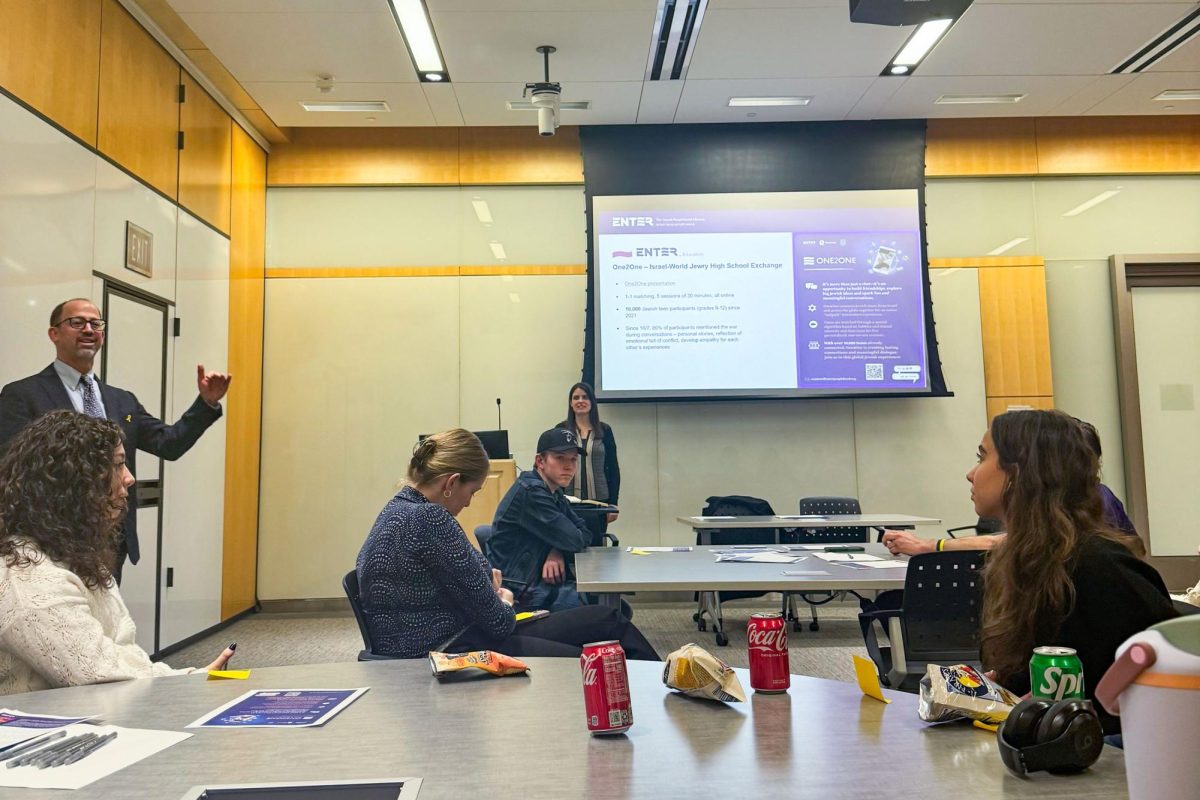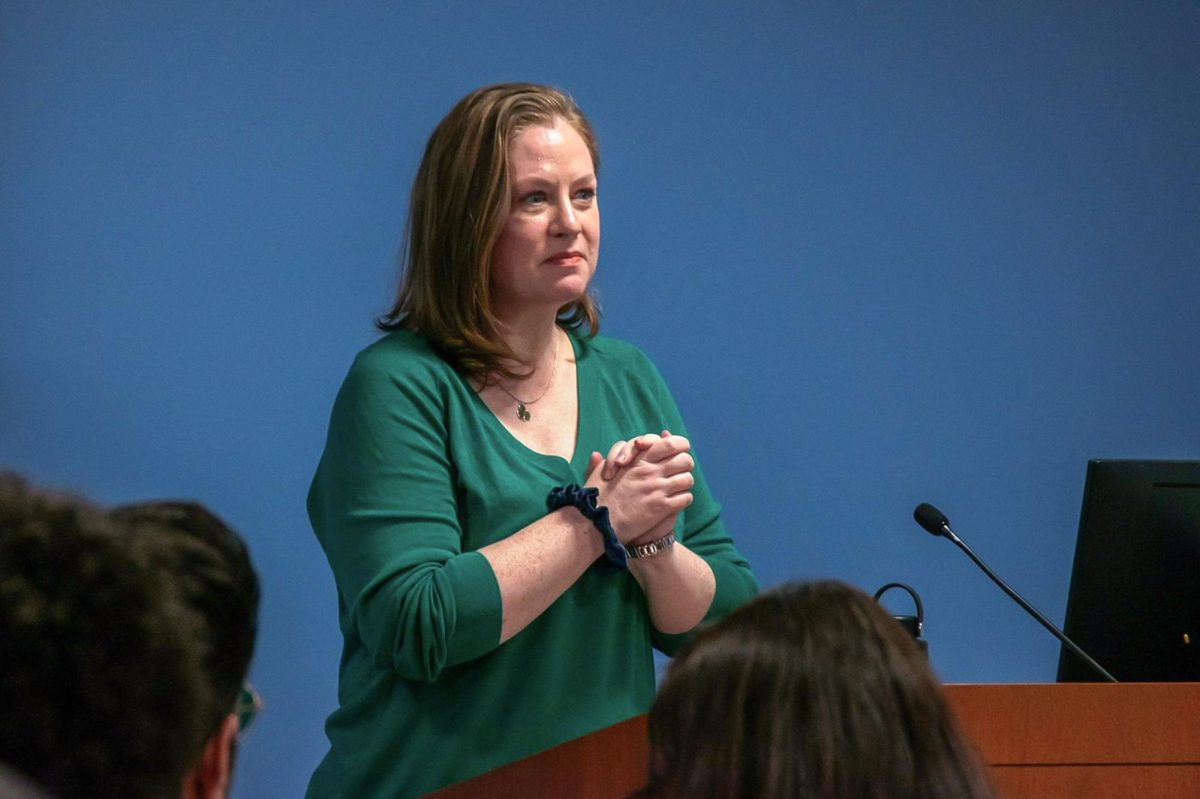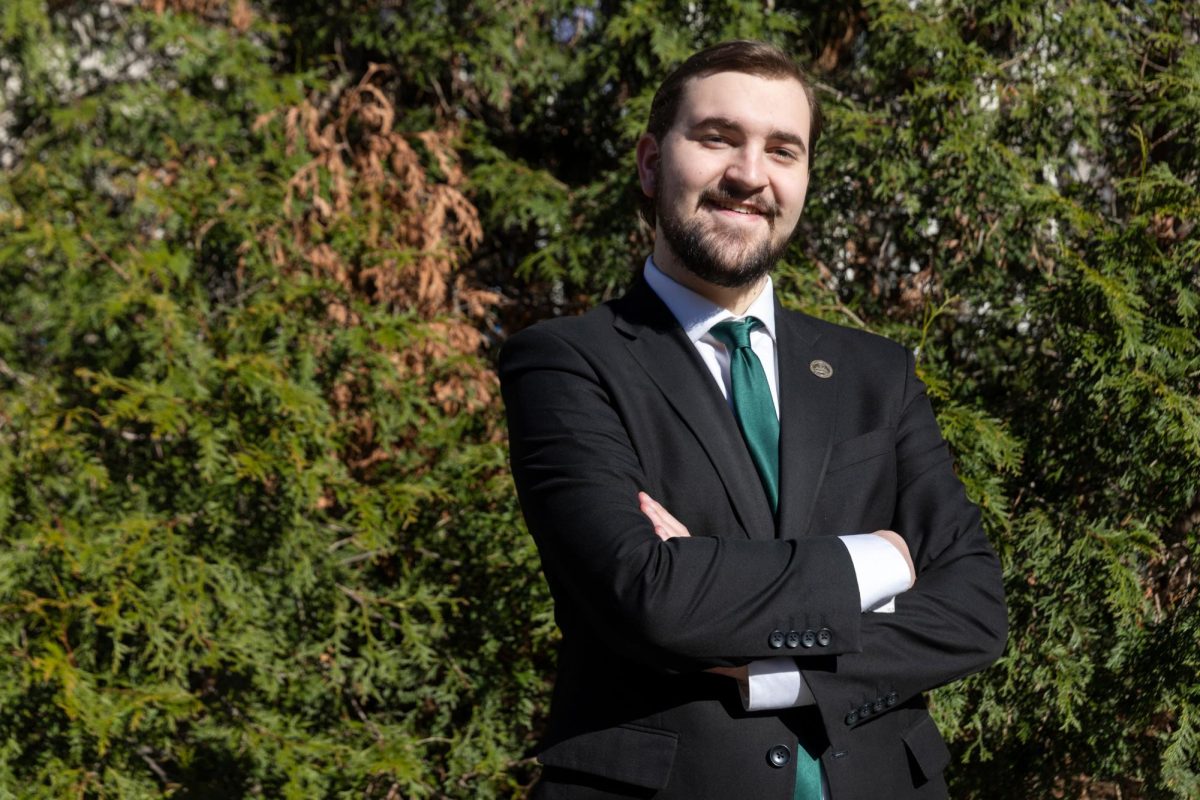A panel of GW students, faculty and alumni discussed intercultural exchanges in politics and media in Lisner Auditorium on Monday.
The panel discussed engaging in challenging political conversations and media literacy through the lens of cultural dialogue. The event was part of New Student Orientation and was moderated by the Honey W. Nashman Center for Civic Engagement and Public Service Executive Director Amy Cohen and School of Media and Public Affairs Director Peter Loge.
Dean of Students Colette Coleman introduced the panel by saying it is an “exciting” time to be at GW because of the 2024 Presidential Election. She said community engagement, learning and democracy are essential values for GW to grow from each other in turbulent times.
“Democracy is in our DNA,” Coleman said. “No matter where you are on the political spectrum, and even if you aren’t political at all, GW is a place where students, faculty and staff come together in community to learn from each other.”
Panelist Bongani Ndebele, a senior studying in the Milken Institute School for Public Health, said it is important and productive to be open to learning from anyone during a difficult political conversation and that people bring individual perspectives from diverse backgrounds.
“I’m being humbled to learn from anyone, from any ideology, no matter how much someone’s beliefs may anger me,” Ndebele said. “Like taking a step back to be like, ‘This isn’t about winning, this is about those people coming out and just learning.’”
Ndebele said work-life balance is important to create a space to grow intellectually. He said during his time at GW, he became involved in the Nashman Center through a tabling event, which got him involved in the GW community and encouraged him to leave the Foggy Bottom “bubble.”
“You can volunteer to read to the children. You can also work with a place called Latino Youth Center and go down there and volunteer there, there’s a ton of opportunities,” Ndebele said. “I got involved in my sophomore year, and I’ve been locked down ever since.”
Panelist Aaliyah Guzman, a senior studying political communication and a Hatchet opinions writer, said it is important to understand why people inherently trust a news source when consuming content in the increasingly polarized news industry. She said this understanding allows people to “check” their confirmation bias when observing political issues through critical thinking skills.
“I think you have to also look at why you want to inherently trust the source,” Guzman said. “I think, when I’m kind of short on time and I’m reading something, if suddenly I read something I’m like, ‘of course, that obviously makes sense,’ then maybe we should backtrack, because that’s when your confirmation bias kind of kicks in.”
Panelist Anthony Thomas, who graduated from GW in 2022 with a master’s in media and strategic communications, said healthy political conversations require people to be selective of what they discuss. He said it is important to understand which discussions are ones that you can learn from.
“I think that something I would tell my younger self, that you really need to conserve your energy,” Thomas said. “You talk a lot about, ‘What is the purpose? What is the strategy? How are you reaching people?’ And in a political campaign, in any sort of real work environment, you can’t respond to every single thing.”


